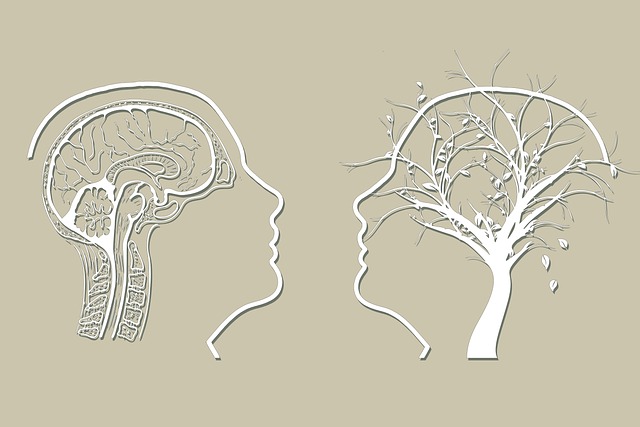Broomfield Psychological Testing Therapy is a holistic approach to mental wellness, utilizing psychological testing and evidence-based practices like Cognitive Behavioral Therapy (CBT) to identify and modify negative thought patterns. Integrating mindfulness, meditation, lifestyle changes, and social support, this therapy empowers individuals with self-awareness tools, such as Mental Wellness Journaling Exercises, to enhance emotional resilience and regulate moods effectively.
In today’s fast-paced world, effective mood regulation is crucial for maintaining emotional well-being. This comprehensive guide explores various strategies to help manage and stabilize moods, starting with understanding the role of psychological testing in Broomfield. From popular therapies like Cognitive Behavioral Therapy (CBT) to mindfulness practices and lifestyle changes, we delve into evidence-based approaches. Additionally, discover the power of support systems and social connections, offering a holistic view of improving mood regulation through professional and personal initiatives.
- Understanding Mood Regulation: The Role of Psychological Testing
- Cognitive Behavioral Therapy (CBT): A Popular Approach for Mood Disorders
- Mindfulness and Meditation Techniques to Stabilize Your Mood
- Lifestyle Changes: Diet, Exercise, and Sleep for Better Emotional Well-being
- Support Systems and Social Connections: Building a Network for Mood Support
Understanding Mood Regulation: The Role of Psychological Testing

Understanding Mood Regulation: The Power of Psychological Testing
Psychological testing is a valuable tool in the realm of mood regulation and mental wellness. Broomfield Psychological Testing offers specialized therapy that delves into an individual’s emotional landscape, helping them navigate complex feelings effectively. By assessing various psychological aspects, such as cognitive patterns, behavior tendencies, and emotional responses, these tests provide insightful guidance. This process allows for a tailored approach to enhancing mental wellness, whether through Social Skills Training or other evidence-based methods.
Through comprehensive testing, individuals gain clarity into their unique challenges and strengths. This knowledge empowers them to engage in reflective practices like Mental Wellness Journaling Exercises, fostering self-awareness and personal growth. By combining the expertise of psychological testing with therapeutic interventions, Broomfield Psychological Testing Therapy ensures a holistic approach to mood regulation, enabling folks to embrace positive change and cultivate resilience.
Cognitive Behavioral Therapy (CBT): A Popular Approach for Mood Disorders

Cognitive Behavioral Therapy (CBT) is a widely recognized and popular approach to addressing mood disorders, offering individuals effective tools to manage their emotional well-being. This therapy focuses on identifying and modifying negative thought patterns and behaviors that contribute to feelings of sadness, anxiety, or irritability. By engaging in CBT, individuals learn to challenge distorted thinking, develop healthier coping mechanisms, and cultivate a more positive outlook on life.
In the context of Broomfield Psychological Testing and Therapy, CBT is tailored to meet the unique needs of each client. This may involve exploring past experiences, current stressors, and interpersonal dynamics to gain insights into one’s emotional patterns. Compassion cultivation practices, coping skills development, and self-awareness exercises are integral components of CBT, enabling individuals to enhance their emotional resilience and overall mental health.
Mindfulness and Meditation Techniques to Stabilize Your Mood

Mindfulness and meditation practices have emerged as powerful tools in Broomfield Psychological Testing Therapy for stabilizing and regulating one’s mood. These techniques encourage individuals to cultivate present-moment awareness, fostering a deeper understanding of their emotional responses. By focusing on the breath or guiding themselves through specific mental exercises, individuals can learn to observe their thoughts and feelings without judgment, thereby reducing the intensity of negative emotions.
In the context of risk assessment for mental health professionals, mindfulness and meditation play a crucial role in emotional regulation. They help professionals maintain equanimity amidst challenging client interactions, enhancing their ability to provide effective therapy. Moreover, these practices can be integrated into a mental wellness journal as guidance for individuals seeking to improve their emotional stability. Regular journaling, combined with mindfulness techniques, allows one to track moods, identify triggers, and implement strategies for managing and regulating emotions effectively.
Lifestyle Changes: Diet, Exercise, and Sleep for Better Emotional Well-being

Making lifestyle changes can significantly impact emotional well-being, and Broomfield Psychological Testing Therapy offers valuable insights into these strategies. A balanced diet, regular exercise, and adequate sleep are fundamental pillars for mood regulation. Nutritious foods provide essential vitamins and minerals that support brain health and influence neurotransmitters, which play a key role in regulating emotions. Physical activity reduces stress hormones and releases endorphins, contributing to improved mood and overall mental well-being. Additionally, prioritizing sleep allows the body to rest and recover, enhancing emotional resilience and enabling better conflict resolution techniques.
These lifestyle adjustments work synergistically with evidence-based practices like trauma support services and emotional healing processes. By combining dietary modifications, exercise routines, and sleep hygiene with professional guidance, individuals can develop effective coping mechanisms for managing their emotions. This holistic approach, often supported by Broomfield Psychological Testing Therapy, empowers folks to take control of their mental health and foster a more positive and balanced state of being.
Support Systems and Social Connections: Building a Network for Mood Support

Having a strong support system is vital for effective mood regulation. Building and maintaining social connections can significantly impact mental health and well-being. At Broomfield Psychological Testing & Therapy, we emphasize the importance of fostering relationships that provide emotional support, encouragement, and understanding. This network can offer different perspectives, help reframe negative thoughts, and act as a buffer during challenging times, which is particularly beneficial in depression prevention strategies.
Social connections also play a crucial role in mental health education programs design. Self-awareness exercises and group therapy sessions facilitate the development of interpersonal skills, enhancing one’s ability to communicate needs and boundaries. By engaging in these activities, individuals can strengthen their support systems, improve self-esteem, and create a sense of belonging, all of which contribute to overall mood regulation and a healthier mind.
Mood regulation is a multifaceted process that involves understanding and addressing various aspects of mental health. From cognitive behavioral therapy (CBT) to lifestyle changes, including diet, exercise, and sleep, individuals have numerous tools at their disposal to manage their emotional well-being. Integrating mindfulness practices and leveraging support systems further enriches the journey towards stable moods. As seen in Broomfield psychological testing and therapy, combining these strategies can lead to significant improvements, offering a holistic approach to overall mental health and happiness.














